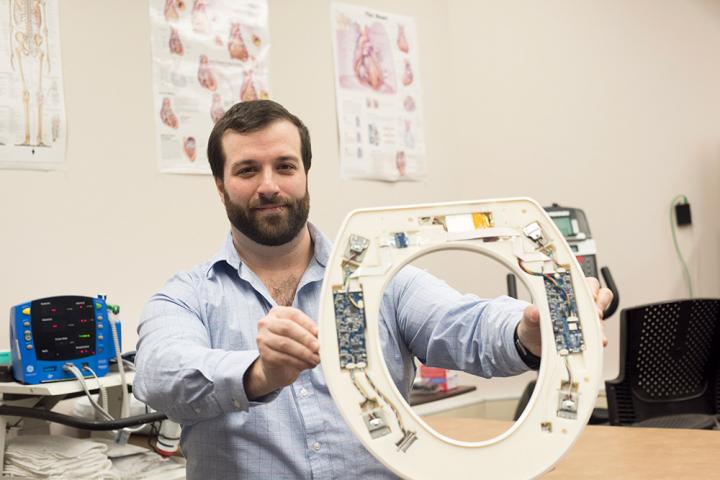
Researchers from the Rochester Institute of Technology (RIT) have developed a toilet seat-based cardiovascular monitoring system that successfully detects congestive heart failure, according to findings published in the Journal of Medical Internet Research (JMIR). The seat is ready to begin commercialization pending FDA-approval.
The toilet seats are designed to measure the electrical and mechanical activity of the heart, and they possess the capability of monitoring heart rate, blood pressure (BP), blood oxygen levels, as well as stroke volume and patient weight. The researchers created algorithms that will analyze the data, and upon further development, alert advance practice providers of a deteriorating condition. At that point, the monitoring system will generate a report for cardiologists to determine if intervention is necessary.
Clinical-Grade Accuracy Achieved
The researchers tested the seat’s efficacy by comparing toilet seat-based estimates of BP and peripheral blood oxygenation to a hospital-grade vital signs monitor for 18 subjects over an 8-week duration. The estimated stroke volume was then validated on 38 normative subjects and 111 subjects undergoing a standard echocardiogram at a hospital facility for any underlying condition, including heart failure.
According to the results, clinical grade accuracy was achieved for all the seat measurements when compared to their respective gold standards, including the accuracy of diastolic BP and systolic BP, which was 1.2 (SD 6.0) mm Hg (n=112), and -2.7 (SD 6.6) mm Hg (n=89), respectively. Moreover, stroke volume showed an accuracy of -2.5 (SD 15.5) mL (n=149) juxtaposed to an echocardiogram gold standard. Additionally, peripheral blood oxygenation had an RMS error of 2.3% (n=91).
Hospital Systems Can Maximize ROI
Nicholas Conn, a postdoctoral fellow at RIT and founder and CEO of HHI, is part of the university team that developed the toilet seats. Conn, who aims to sell these seats to hospitals (to then be issued to patients after discharge), spoke on the financial benefits they can have on hospital systems, saying in a press release that “typically, within 30 days of hospital discharge, 25% percent of patients with congestive heart failure are readmitted. After 90 days of hospital discharge, 45% of patients are readmitted. And the Centers for Medicare and Medicaid Services is penalizing hospitals for readmitting patients for heart failure.”
Toilet seat that detects congestive heart failure getting ready to begin commercialization https://t.co/XDgx8Gl8Z2
— Crwe World (@CrweWorld) March 20, 2019
Conn further noted that based on the national average for readmission rates, the penalty for readmitting 150 cardiac patients is approximately $500,000. Considering that the total cost of providing that same number of patients with monitored toilet seats is $200,000, hospital systems could experience a substantial return on investment by purchasing these systems.
According to Conn, the system will detect adverse conditions before patients even realize they are symptomatic, and using rapid data analysis, interventions can be as simple as a prescription drug change, or short office visit, thus avoiding the need for hospital admission.
The team of HHI researchers are currently conducting human-subject testing and pre-clinical studies, while writing grants to prompt additional funding and networking.
Toilet seat that detects congestive heart failure getting ready to begin commercialization: Researchers developed the seats to measure biometrics during 'natural' processes https://t.co/H9XlYcU9L8
— Joel "Heart Prevention" Kahn MD, FACC (@drjkahn) March 22, 2019
A thing we may not realize #Toilet seat that detects #congestive #heart failure getting ready to begin #commercialization,
Talk on Cognitive diseases @ Bacterial Diseases 2019 Dubai UAEhttps://t.co/vITTGZL1x5 pic.twitter.com/NFhbKrwhYx— Bacterial Diseases 2020 (@Bacterial2019) March 26, 2019







 © 2025 Mashup Media, LLC, a Formedics Property. All Rights Reserved.
© 2025 Mashup Media, LLC, a Formedics Property. All Rights Reserved.